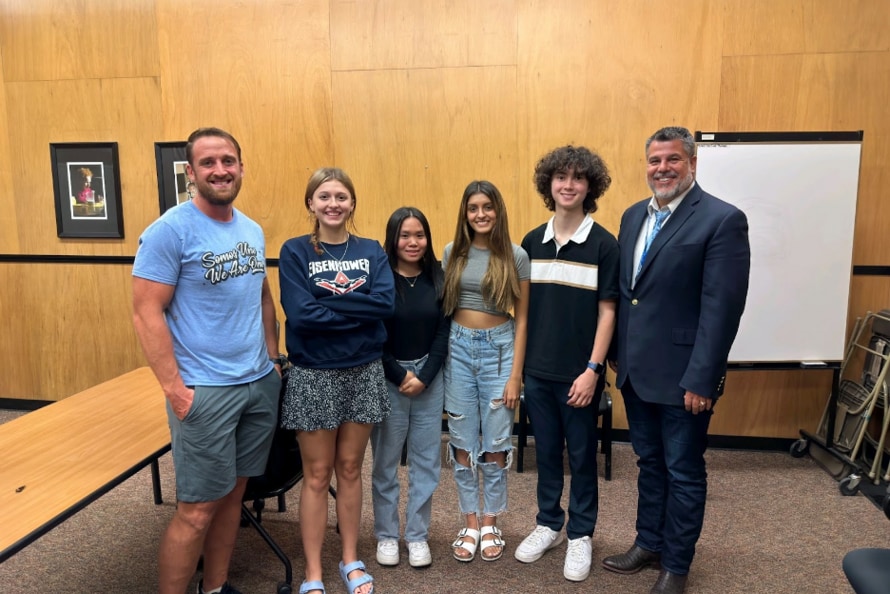Marcello Sgambelluri (D.C. Region '09) is Helping Students Have a Real Say in Decisions Affecting Their Education

As the equity Program Manager for Yakima Public Schools, Teach for America alum Marcello Sgambelluri, a 2009 D.C. Region corps member, focuses much of his efforts on lifting up student voice and ensuring that students have a real say in decisions affecting their education.
Like many catchphrases in education ‘student voice’ is frequently uttered but rarely implemented authentically. Marcello is determined to make sure that doesn’t happen in Yakima, his hometown.
“A lot of times you just bring in a group of students, get a check mark on a survey, and say you have student voice in your district,” he said. “We are looking at how to make that a more reciprocal relationship, where students get just as much out as they're putting in and then also creating some real actions out of their desires.”
To support his efforts, Marcello secured a $180,000 grant from College Spark, a nonprofit focused on dismantling racism in public education. He has created a student voice fellowship program that equips students with college and career skills while engaging with student voice at the district level.
To date, students have weighed in on issues including school resource officers in schools, nutritious meals, and a balanced calendar.
But the major impact they’re seeking is to have student voice enshrined in district policy. If they succeed – and signs are all positive – Yakima would likely be just the second school district in the nation (after Washoe County schools in Reno, NV.) with an official school board student voice policy.
“Their hope being that student voice becomes a non-negotiable in the district and threaded into everything the district does.”
Marcello hopes the board will adopt a student voice policy sometime in the next year.
As students have studied how the school district operates, they have come to realize that policy drives everything, Marcello said. “That got them interested in creating a policy at the very highest level that holds the board and the superintendent accountable to including student voice in decision making processes,” he said. “Their hope being that student voice becomes a non-negotiable in the district and threaded into everything the district does.”
As a first step, Marcello helped students work on a definition of student voice, which the school board has “confirmed,” Marcello said. The definition reads as follows:
“Student Voice defines the authentic communication of all students' perspectives and ideas, where students are empowered and student voice structures are implemented by the whole school community to advance educational equity for generations to come."
Empowering students who might otherwise struggle to exert influence is a passion of Marcello’s. Yakima is an agricultural community, and the district’s student population is predominantly low-income students of color. Almost one-third of Yakima students are categorized as English Language Learners.
Marcello’s efforts in Yakima follow upon work he has done on equity and student voice issues in other districts, including Boston Public Schools, where he produced a presentation for all district principals and 500 teachers on systemic racism and its effects on schools and society.
“A big part of my work has been taking a comprehensive view of our students' experience in society at large and then considering how that impacts classroom practice and classroom structures and considering the larger social context when serving students,” he said.
As students gain knowledge and confidence, they’re also building academic and social skills that will help them succeed later in life, Marcello said.
“They’re developing skills in professional writing, interfacing with adults and interfacing with power systems and the push and pull of bureaucracy and structures that they would interface with in any setting in the future in their community,” he said. “This includes in the workplace and in college.”


